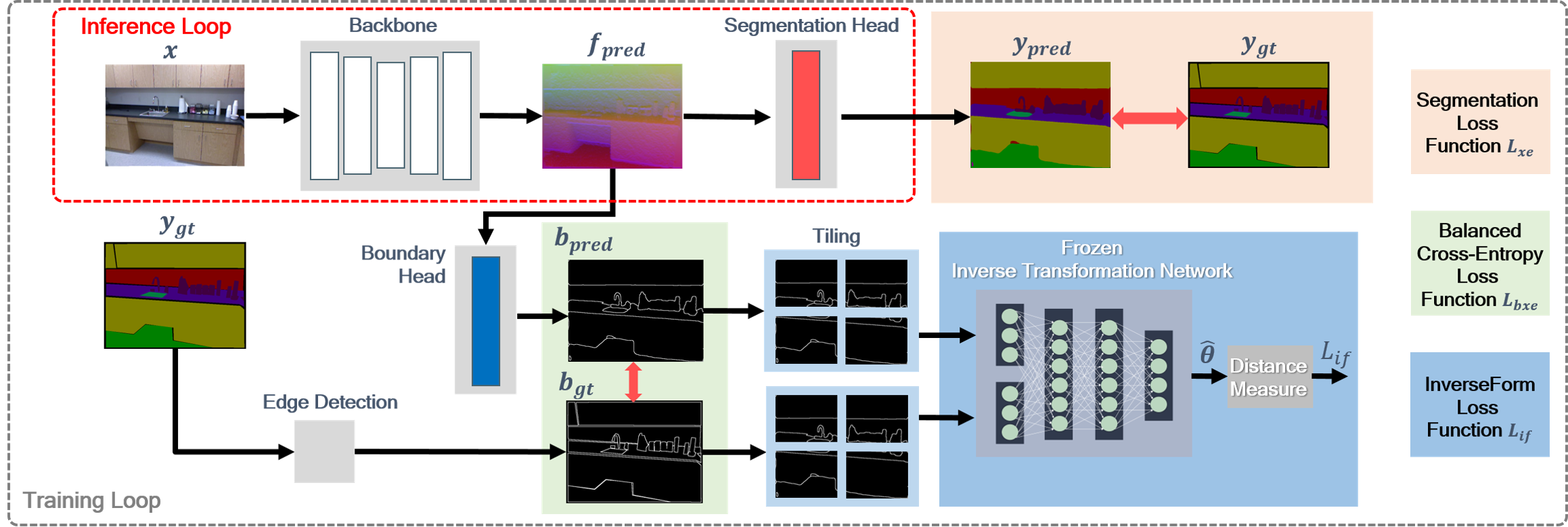InverseForm: A Loss Function for Structured Boundary-Aware Segmentation
We present a novel boundary-aware loss term for semantic segmentation using an inverse-transformation network, which efficiently learns the degree of parametric transformations between estimated and target boundaries. This plug-in loss term complements the cross-entropy loss in capturing boundary transformations and allows consistent and significant performance improvement on segmentation backbone models without increasing their size and computational complexity. We analyze the quantitative and qualitative effects of our loss function on three indoor and outdoor segmentation benchmarks, including Cityscapes, NYU-Depth-v2, and PASCAL, integrating it into the training phase of several backbone networks in both single-task and multi-task settings. Our extensive experiments show that the proposed method consistently outperforms baselines, and even sets the new state-of-the-art on two datasets.
PDF Abstract CVPR 2021 PDF CVPR 2021 AbstractCode
Datasets
Results from the Paper
 Ranked #5 on
Semantic Segmentation
on Cityscapes test
(using extra training data)
Ranked #5 on
Semantic Segmentation
on Cityscapes test
(using extra training data)






 Cityscapes
Cityscapes
 NYUv2
NYUv2